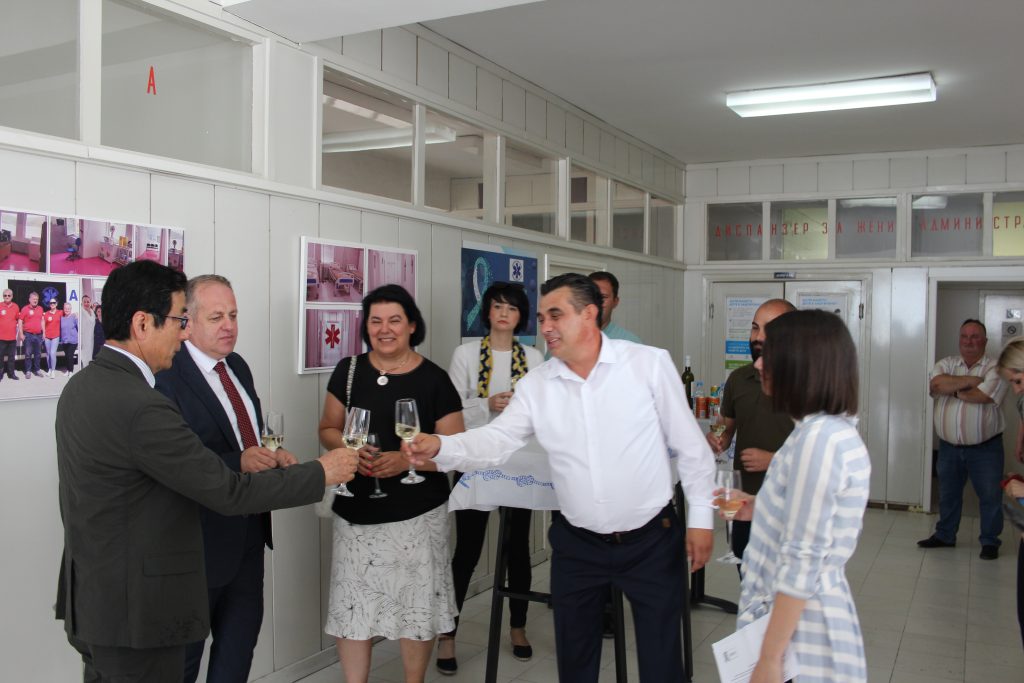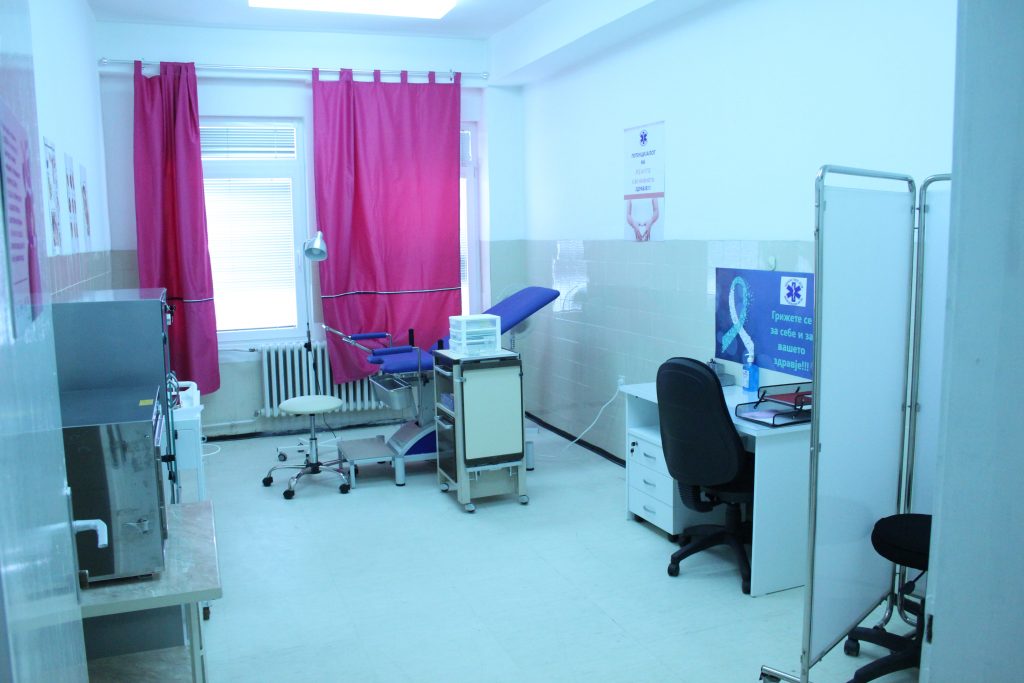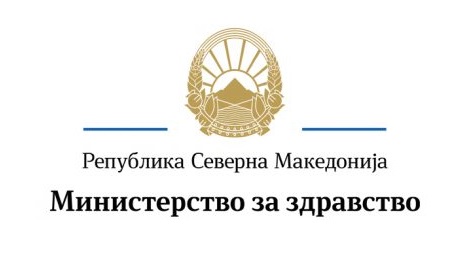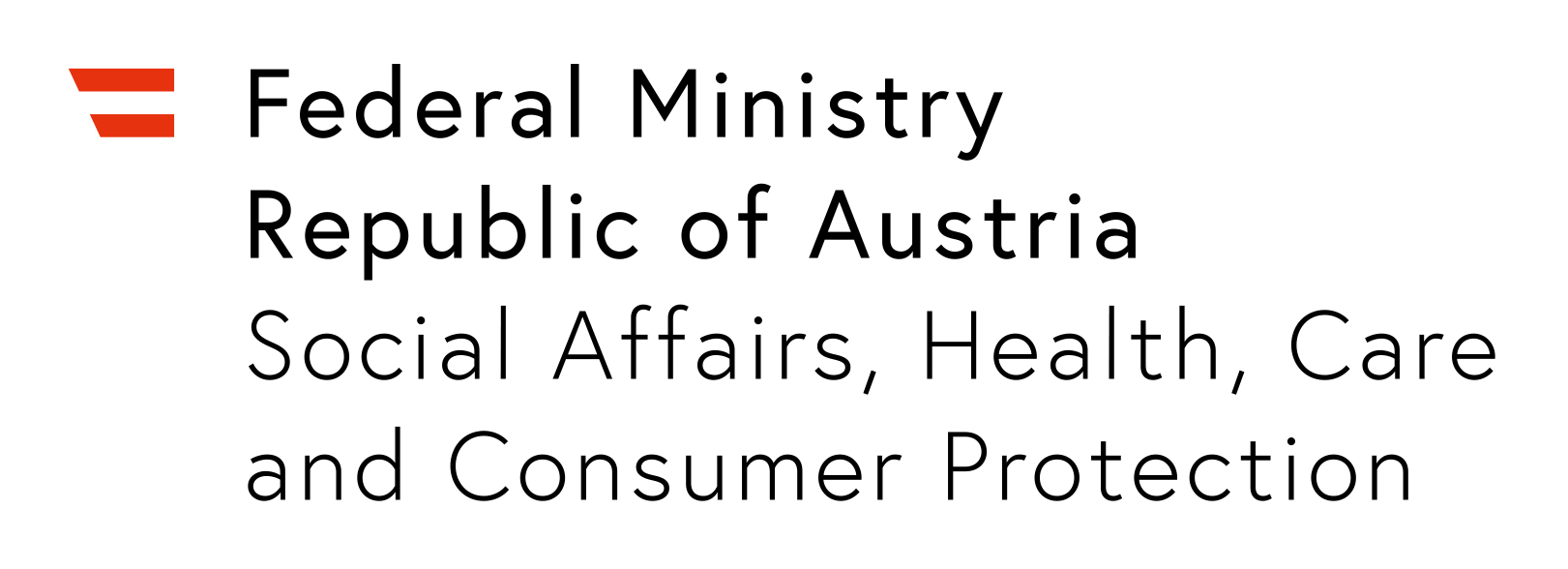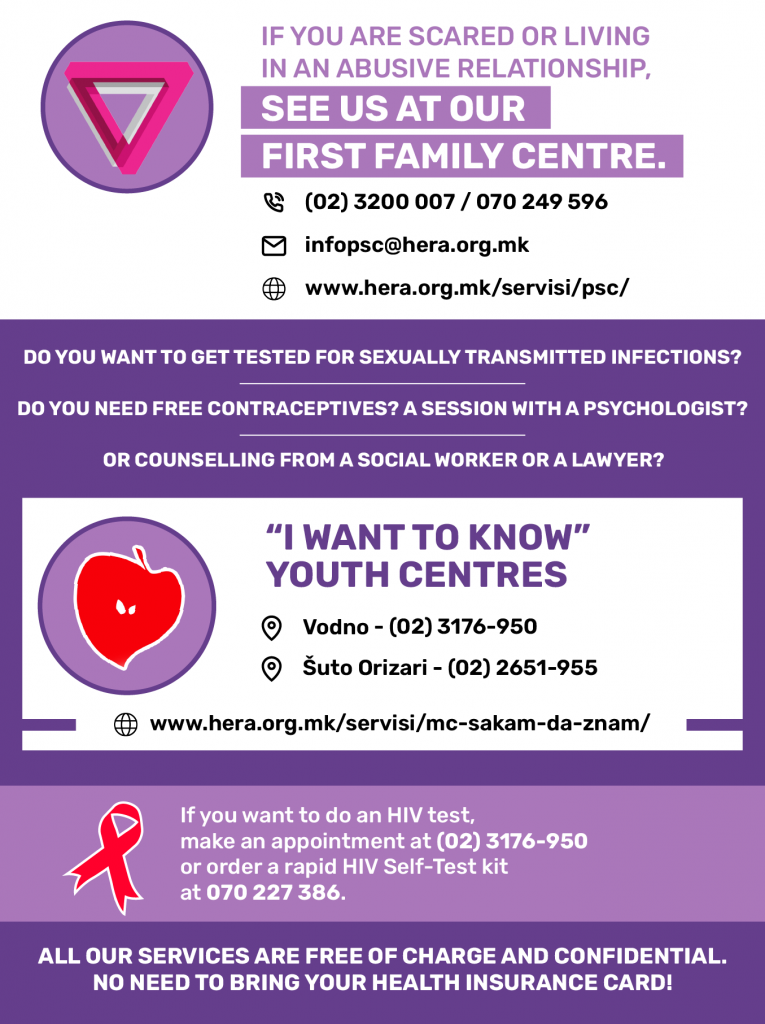Women and girls in reproductive period living in these regions, and particularly women with disability, Roma women and women from the rural areas, will be able to have a Pap test and receive contraceptives or other sexual and reproductive health services free of charge.
Today, HERA – Health Education and Research Association and the Family Medicine Centre officially marked the opening of the gynaecology office in the premises of the Healthcare Centre in Makedonski Brod, at the same time marking the commissioning of 3 more gynaecology offices in the healthcare centres in the towns of Resen, Radoviš and Delčevo. This way, the sexual and reproductive health of more than 20,600 women and girls aged between 15 and 49 who live in these healthcare regions has been significantly improved, as so far they have had access to only 4 general gynaecologists, according to an earlier mapping.
The opening was attended by the Ambassador of Japan to the Republic of North Macedonia, Mr. Sawada Hironari; the Mayor of Makedonski Brod, Mr. Žarko Risteski; the Director of the Healthcare Centre in Makedonski Brod, Mr. Žarko Simeski; HERA’s Programme Director, Elizabeta Božinoska; and Dr. Katarina Stavrić from the Family Medicine Centre. The furnishing of the 4 gynaecology offices was made in cooperation between HERA and the Family Medicine Centre of the Faculty of Medicine in Skopje, with the funding from the Japan Trust Fund and the International Planned Parenthood Federation, and with the support from the Japanese Government and the people of Japan.
These offices provide free contraceptives (condoms, oral contraceptives and emergency contraception), educational brochures, as well as vaginal swab tests for sexually transmitted infections and Pap tests. They have been situated within the healthcare centres so as to facilitate the access to gynaecological services and family planning for women in these towns. They are primarily intended for family doctors who have received a corresponding theoretical and practical training organised by the Family Medicine Centre and the University Gynaecology and Obstetrics Clinic, but can also be used by the secondary and tertiary level gynaecologists, who will be able to visit the healthcare centres on particular days of the week and provide additional specialised services.
The intention is to grant the equipment to the public healthcare system so it can be used free of charge by all interested family doctors and gynaecologists in the future. The involvement of family doctors as competent providers of reproductive health services has been provided for by the 2019 Primary Healthcare System Reforms, which is why HERA and the Family Medicine Centre, together with the Ministry of Health and the Health Insurance Fund, with the support from the Japanese Government and the people ofJapan, have developed the National Plan, and have also designed the curriculum for family doctors, and organised theoretical and practical training which were delivered by clinical gynaecologists to 24 family doctors from the 10 healthcare regions of Macedonia.
In this way, by upskilling and accrediting the professionals, by providing the necessary equipment and supplies, by developing the primary healthcare service provision protocols, and by offering financial incentives, the number of gynaecological service providers will increase, including by family doctors, who are essential to the women’s reproductive care. The enhanced availability and access to quality preventive sexual and reproductive health services in the primary healthcare will mean better health for women and girls, but also a smaller burden for the healthcare system, which invests much more human and financial resources every time the prevention fails.
This event is part of the project “Family doctors, partners in expanding the access to and choice of contraception and sexual and reproductive health”, which is implemented in partnership between HERA – Health Education and Research Association and the Family Medicine Centre of the Faculty of Medicine in Skopje, with the support from the Ministry of Health, Health Insurance Fund and with the financial support from the Japanese Government (Japan Trust Fund).


